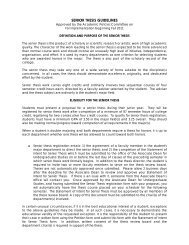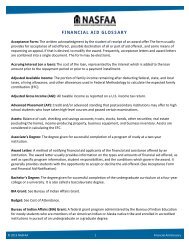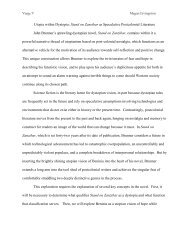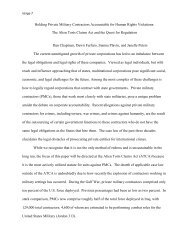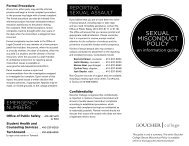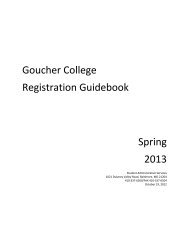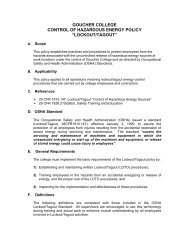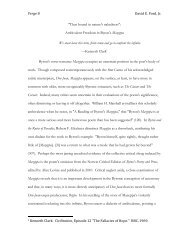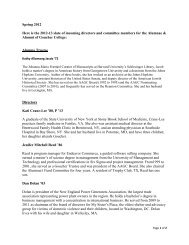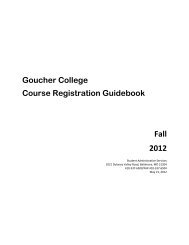Abraham Lincoln and the Northern Anti-War Press
Abraham Lincoln and the Northern Anti-War Press
Abraham Lincoln and the Northern Anti-War Press
You also want an ePaper? Increase the reach of your titles
YUMPU automatically turns print PDFs into web optimized ePapers that Google loves.
Verge 6 Wer<strong>the</strong>imer 8<br />
By censoring telegraphic communication, <strong>the</strong> <strong>Lincoln</strong> administration made it more difficult for<br />
Nor<strong>the</strong>rn press outlets to receive valuable information from <strong>the</strong>ir sources in <strong>the</strong> South.<br />
In due time, this program would be greatly exp<strong>and</strong>ed. On February 2 nd 1862, <strong>the</strong><br />
Congress authorized <strong>the</strong> President to supervise all telegraph lines in <strong>the</strong> United States. This<br />
undertaking was carried out by military personnel, <strong>and</strong> <strong>the</strong> <strong>War</strong> Department censored messages<br />
when necessary. “All telegraphic communications concerning military matters not authorized by<br />
<strong>the</strong> Secretary of <strong>War</strong>, or <strong>the</strong> comm<strong>and</strong>ing general of <strong>the</strong> district, were forbidden” (R<strong>and</strong>all 483).<br />
The Treasury, State, <strong>and</strong> <strong>War</strong> Departments were all in control of <strong>the</strong> lines of communication at<br />
various points during <strong>the</strong> course of <strong>the</strong> war.<br />
The various measures undertaken by <strong>the</strong> <strong>Lincoln</strong> administration to suppress anti-war<br />
sentiment were often unprecedented in American history. Scholars have grappled with <strong>the</strong>se<br />
actions in a myriad of ways. In his book Freedom Under <strong>Lincoln</strong>, Dean Sprague writes three<br />
hundred pages detailing <strong>the</strong> extraordinary ways in which civil liberties were curtailed in 1861.<br />
And yet, he concludes his work with a chapter entitled “<strong>Lincoln</strong>, The Humanitarian.” Sprague<br />
does not attempt to justify <strong>Lincoln</strong>‟s actions from a constitutional perspective but instead boldly<br />
proclaims that such measures were necessary to preserve <strong>the</strong> Union. Sprague even goes so far as<br />
to praise <strong>Lincoln</strong> for being “a man of iron who was willing to see hundreds of thous<strong>and</strong>s of<br />
young men die for <strong>the</strong> sake of <strong>the</strong> Union <strong>and</strong> not above sending a few hundred to prison for<br />
opposing <strong>the</strong> war” (Sprague 302). In Sprague‟s view, <strong>the</strong> denial of basic freedoms <strong>and</strong> <strong>the</strong> deaths<br />
of several hundred thous<strong>and</strong> Americans was apparently a reasonable price to pay for <strong>the</strong><br />
preservation of <strong>the</strong> Union.<br />
Earlier in his book, Sprague tries to distance <strong>Lincoln</strong> from some of <strong>the</strong> overt attacks on<br />
Nor<strong>the</strong>rn newspapers by asserting that members of his cabinet were largely responsible for <strong>the</strong>se



